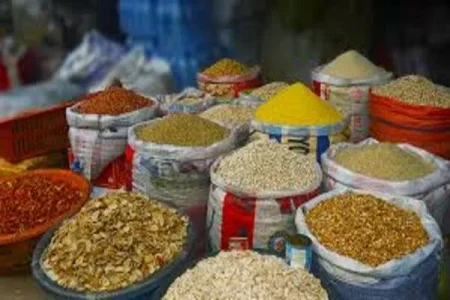
Nigeria's inflation rate surged to 34.6% in November 2024, driven by rising food prices, including yam, rice, and maize. The National Bureau of Statistics reported food inflation at 39.93%, with Bauchi, Kebbi, and Anambra recording the highest rates. Regional disparities highlight varying economic conditions across the country.
Nigeria's inflation rate has risen to 34.6% in November 2024, up from 33.8% in October. According to the National Bureau of Statistics (NBS), this marks an increase of 0.72%, with the headline inflation rate on a year-on-year basis rising by 6.4% compared to November 2023. The slight month-on-month decrease of 0.002% suggests that the rate of price increase has marginally slowed compared to October.
Food inflation saw a significant rise, reaching 39.93% in November 2024, reflecting a 7% increase over the previous year. The hike in food prices was driven by rising costs for essential items such as yam, rice, maize, palm oil, and various meats. The NBS also reported a 2.98% month-on-month increase in food inflation, with key contributors being fish, milk, and grains. The annual rate of food inflation reached an average of 38.67% in November, an 11.58% increase from the previous year.
Regionally, Bauchi (46.21%), Kebbi (42.41%), and Anambra (40.48%) saw the highest food inflation rates. In contrast, Delta, Benue, and Katsina experienced the lowest food price increases. Additionally, states like Yobe, Kebbi, and Anambra had the highest month-on-month food inflation, while Adamawa, Osun, and Kogi showed the slowest rate of increase. Despite the overall rise in inflation, these regional disparities highlight varying economic conditions across the country.




